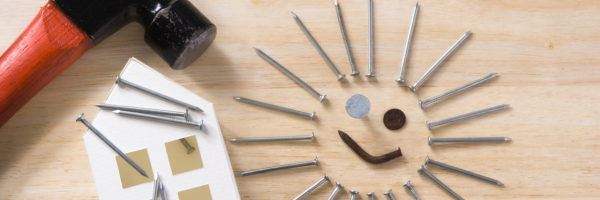The Importance of Property Maintenance

Property maintenance is an essential aspect of being a landlord. As a landlord, you are responsible for maintaining the property in good condition, ensuring that it is safe and habitable for your tenants. Failure to maintain the property can lead to legal issues, unhappy tenants, and a loss of income. In this blog, we will discuss the importance of property maintenance and the landlord’s responsibility in maintaining their property.
Importance of Property Maintenance
Proper property maintenance is crucial for several reasons. Firstly, it ensures the safety of your tenants. Maintaining the property’s structure, electrical, and plumbing systems prevents accidents, such as electrocutions or flooding, from occurring. Secondly, regular maintenance can save you money in the long run. By fixing small problems before they become significant issues, you avoid the need for expensive repairs or replacements. Finally, a well-maintained property attracts and retains tenants, ensuring that you have a steady stream of rental income.
Landlord’s Responsibility
As a landlord, you have a legal responsibility to maintain your property. The landlord’s responsibility can vary depending on the state or territory where the property is located. However, some general responsibilities include:
- Maintaining the Property’s Structure: This includes ensuring that the roof, walls, windows, and doors are in good condition and free of leaks, cracks, or other damages.
- Electrical Systems: The landlord is responsible for ensuring that the property’s electrical systems are safe and functional, including wiring, outlets, and switches.
- Plumbing Systems: The landlord must ensure that the plumbing systems are functional and free from leaks or blockages. This includes sinks, toilets, and showers.
- Heating and Cooling Systems: The landlord must provide heating systems during the winter and cooling systems during the summer, where applicable.
- Safety Measures: The landlord must install and maintain safety measures such as smoke detectors, carbon monoxide detectors, and fire extinguishers.
- Pest Control: The landlord must ensure that the property is free from pests, including rodents and insects.
While the landlord is responsible for maintaining the property, tenants are also responsible for taking reasonable care of the property and reporting any damages or issues to the landlord promptly.
Property maintenance is an essential aspect of being a landlord. It ensures the safety of your tenants, saves you money, and attracts and retains tenants. As a landlord, it is your legal responsibility to maintain the property. Failure to do so can lead to legal issues, unhappy tenants, and a loss of income. By taking your responsibility seriously and maintaining your property regularly, you can ensure that your property remains safe, functional, and attractive to potential tenants.
Property maintenance can be a challenging task for landlords who have other responsibilities to manage. This is where a property manager comes in and can help with property maintenance for a landlord.
Regular Inspections
One of the critical ways a property manager can help with property maintenance is by conducting regular inspections. Inspections help to identify potential issues before they turn into costly repairs. Property managers will often conduct inspections between tenancies and at regular intervals during tenancies. During the inspection, they will look for any issues, such as leaks, cracks, or faulty electrical systems. They will also check for wear and tear and make recommendations for repairs or upgrades.
Coordination of Repairs and Maintenance
A property manager will also coordinate repairs and maintenance on behalf of the landlord. They will hire contractors and oversee the work to ensure it is completed to a high standard. Property managers have access to a network of contractors, including electricians, plumbers, and handymen, who can provide efficient and cost-effective solutions to maintenance issues.
Emergency Maintenance
In the event of an emergency, a property manager can provide quick and efficient solutions to ensure the safety and well-being of tenants. For example, if a pipe bursts in the middle of the night, the property manager will have access to an emergency plumber who can fix the issue immediately. This reduces the risk of further damage to the property and minimises the inconvenience to the tenant.
Tenant Communication
A property manager can act as a liaison between the landlord and the tenant when it comes to property maintenance. They will communicate with tenants about scheduled maintenance, repairs, and inspections, and ensure that tenants are aware of any disruptions to their daily routine. This open communication can help to build trust between the landlord, property manager, and tenants, resulting in a more positive rental experience.
Record-Keeping
Property managers keep accurate and up-to-date records of all maintenance and repairs carried out on the property. This record-keeping ensures that the landlord is aware of the maintenance history of the property and can make informed decisions about future repairs and upgrades. It also provides a legal record in case of disputes between the landlord and tenant.
A property manager can be an invaluable resource for landlords when it comes to property maintenance. They can conduct regular inspections, coordinate repairs and maintenance, provide emergency solutions, communicate with tenants, and keep accurate records. By outsourcing property management to a professional, landlords can focus on other aspects of their business, knowing that their property is in good hands. A property manager can help landlords to ensure the safety and well-being of their tenants, protect their investment, and maintain a positive rental experience for all parties involved.
Contact Sole Agents today to discuss your investment property and how best we can help!


